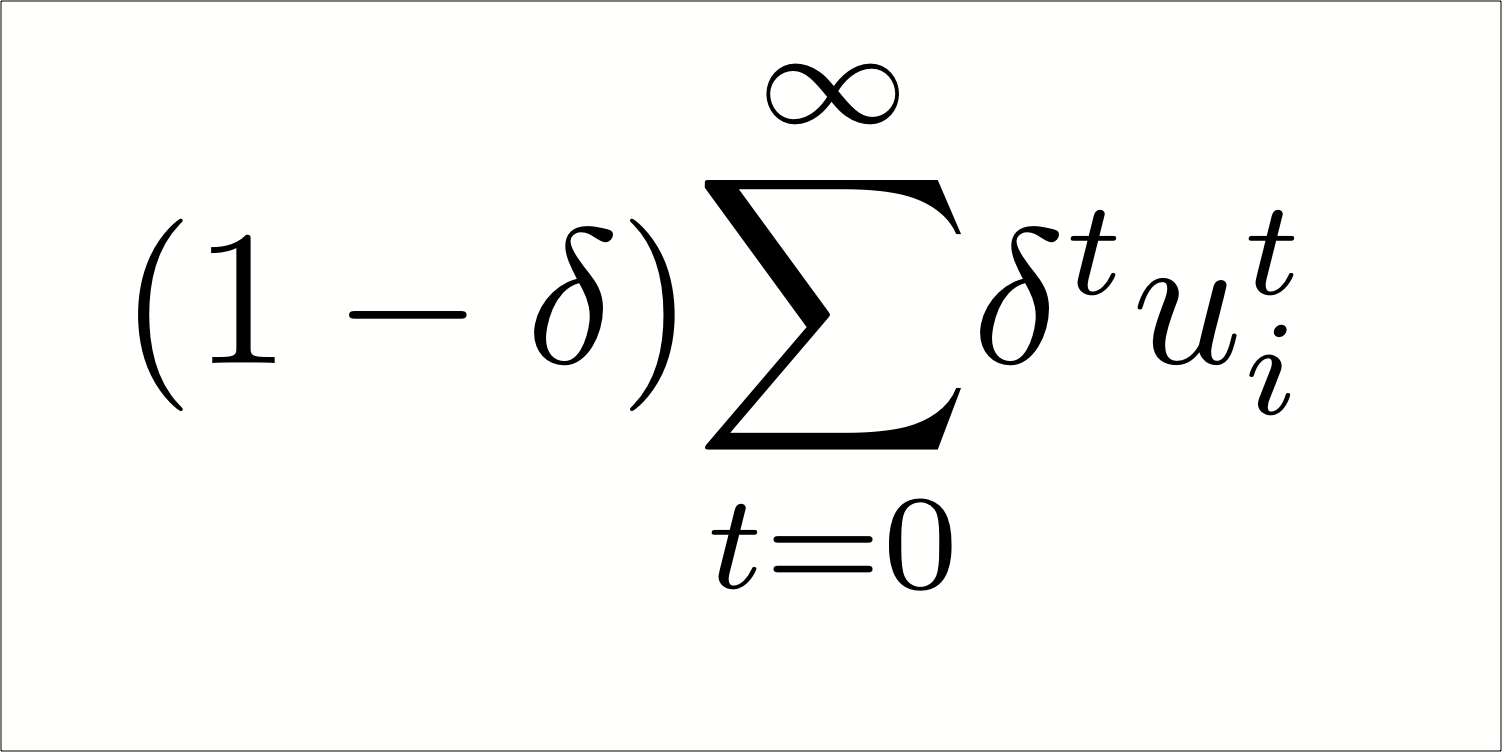
Abstract
We’ll now discuss repeated games which are “infinitely repeated.” This need not mean that the game never ends, however. We will see that this framework is appropriate for modeling situations in which the game eventually ends (with probability one) but the players are uncertain about exactly when the last period is (and they always believe there’s some chance the game will continue to the next period).
Infinite repetitions of the stage game potentially pose a problem: a player’s repeated-game payoff may be infinite. We ensure the finiteness of the repeated-game payoffs by introducing discounting of future payoffs relative to earlier payoffs. Such discounting can be an expression of time preference and/or uncertainty about the length of the game. We introduce the average discounted payoff as a convenience which normalizes the repeated-game payoffs to be “on the same scale” as the stage-game payoffs.
Infinite repetition can be key to obtaining behavior in the stage games which could not be equilibrium behavior if the game were played once or a known finite number of times. For example, finking every period by both players is the unique equilibrium in any finite repetition of the prisoners’ dilemma. When repeated an infinite number of times, however, cooperation in every period is an equilibrium if the players are “sufficiently patient.”
We first show that cooperation is a Nash equilibrium of the infinitely repeated game for sufficiently patient players. Then we discuss subgames of infinitely repeated games and show that, in our uniformly discounted payoff scenario, a subgame is the same infinitely repeated game as the original game. We derive how to restrict a repeated-game strategy to a subgame. This allows us to complete the analysis of the example by showing that cooperation in every period by both players is a subgame-perfect equilibrium of the infinitely repeated prisoners’ dilemma for sufficiently patient players.






